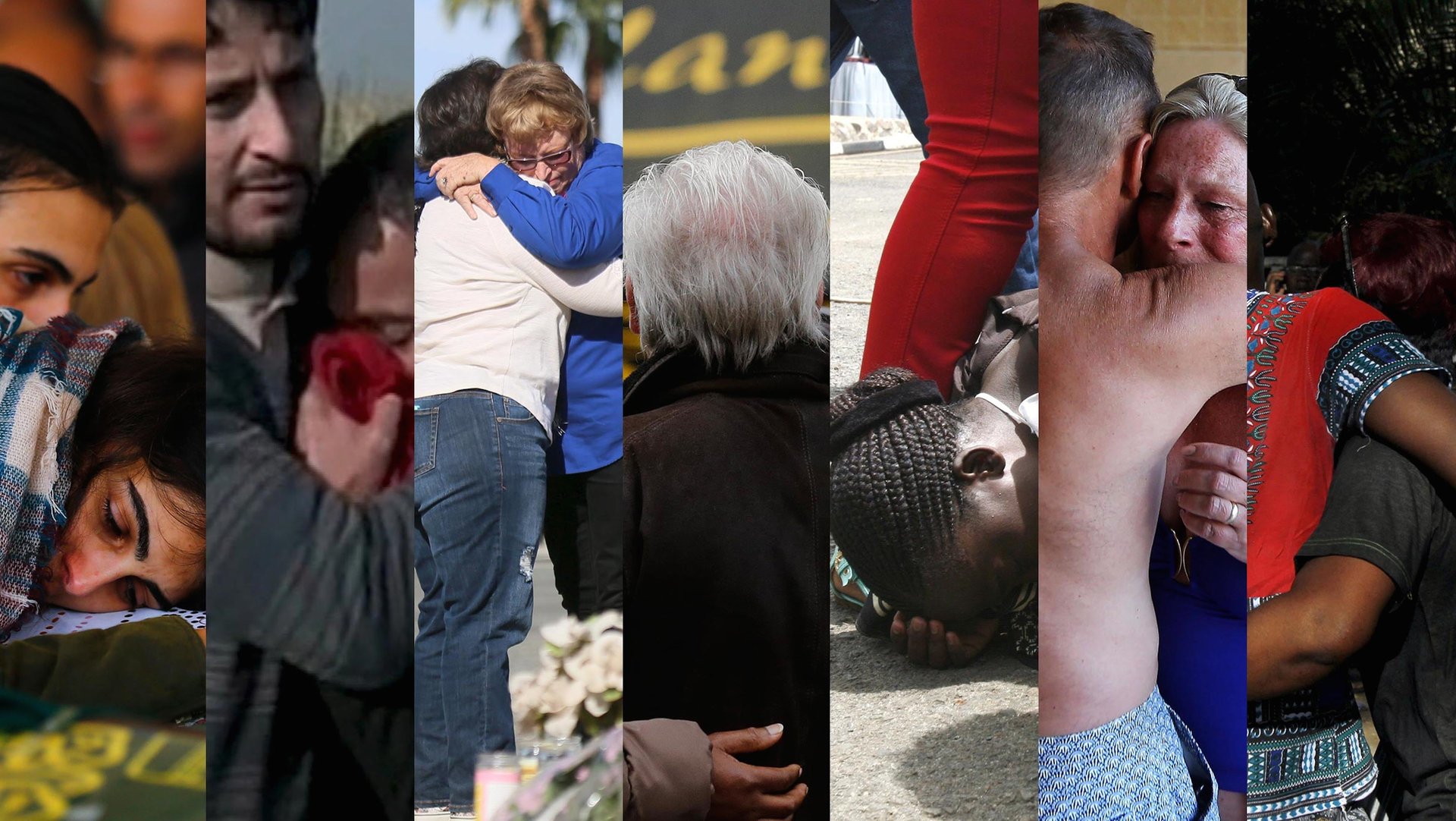We can never beat terrorism until we care about all of its victims equally
Last Sunday (Mar. 13), 53 people were killed in two terrorist attacks a few hours and 4,500 miles apart.


Last Sunday (Mar. 13), 53 people were killed in two terrorist attacks a few hours and 4,500 miles apart.
The victims included a 5-year-old child, students, the director of an international cultural association, the father of a well-known football player, a security guard, two young lovers, a taxi driver, a basketball player, and a 23-year-old man who had lost his best friend in another terrorist attack just a few months earlier.
The attacks happened at a busy square in Ankara, Turkey, and a luxury resort in Grand Bassam, Côte d’Ivoire. They were bloody, senseless, and conducted by cowards intent on spreading panic and fear. And almost nobody seemed to care.
In a now familiar pattern, these deaths went essentially unnoticed by the world at large. Unlike what has happened following attacks in Western countries—or, more generally, countries that we consider safe—there was no frenzy. People weren’t frantically searching for updates; the news stations didn’t send reporters to breathlessly cover every minute development. In fact, a few days later, many details of the attacks remain unreported, particularly about what’s being called the “Ivory Coast Attack” (which, by the way, is like calling the attacks in San Bernardino, California,“the United States attack”).
What time did the attack happen? Who were the people who died? It’s been reported that one young victim, under five years old, was shot next to another child for not getting on his knees and praying (the other child did so, and was spared). Among the victims were “foreign citizens from Burkina Faso, Cameroon, France, Germany, and Mali.” We know that one of the men killed, Henrike Grohs, 51, was the head of a local branch of the Goethe-Institut.
Even about Ankara, local sites are circulating lists of victims, but there is little in the way of international outrage or social media solidarity. No one is Ankara. No one is Grand Bassam.
But then again, no one was Istanbul, when an attack occurred earlier this year. No one was Bodo (Cameroon), Jakarta (Indonesia), Ouagadougou (Burkina Faso), or Charsadda, (Pakistan).
We don’t know, we don’t care, and we don’t care to know. It’s a vicious cycle.
The numbers of terrorist attacks keeps growing. Just today, we received news that an estimated 22 worshipers were killed by suicide bombers in a mosque in another attack in the Nigerian city of Maiduguri. The tally of terrorists attacks has surpassed 200 in 2016 alone: How many of them can you remember? For how many of the victims, and their loved ones, did you show actual empathy?
To be clear, this is not a scolding. It’s natural that tragedies and horrors impact us far more when they happen closer to us—geographically and culturally. Even as technological advancements has made many of us feel more connected than ever, those existing freely in the public, digital arena are still disproportionally Western and privileged. When something happens in Paris, or London, or Madrid, we perceive it as happening in parts of the world we consider “safe”—that is, our physical world.
For Africa, central Asia, the Middle East, the implications are different. They are the places most of us like to visit, but few of us would like to live in. And so we feel less connected to those people, and their tragedies. We do not feel they are our tragedy.
It’s hypocritical, disappointing, and perhaps unavoidably human.
Empathy, like all emotions, can’t be demanded. And yet, there can and must be a middle ground between the outpouring of solidarity we see when a terror attack strikes a Western country and the complete silence when it hits people we consider somehow other.
At its most basic, the fight against terrorism has two sides—those trying to incite fear and those who must fight that fear. Whether in New York or Mogadishu, the victims of terrorism represent the casualties of a war they—we—didn’t choose, one with an ever-moving frontline they happened to be at, on the wrong day.
It’s an impossible war, resistant to traditional armies. Perhaps the most effective weapons are intangible: empathy, and resilience.
We’re reminded of the importance of resilience whenever an attack happens. We know that returning to some semblance of a normal life after an attack is the ultimate revenge, and targets the root of the terrorist’s power source.
But empathy, too, is incredibly important. In its absence, men and women consumed by hatred become willing to kill innocents in the name of hate. Isn’t that what terrorism ultimately is? We must do the opposite, and embody empathy as much as we can.
If we can’t care about every dead, we can make an effort to know, to name, and to honor our sisters and brothers in arms—the mothers and fathers and children and friends who are killed, daily, by an evil that knows no compassion. Sometimes it feels like it’s just too many to keep a count—but we have the moral duty to at least try.
Because they could be us—they are us.